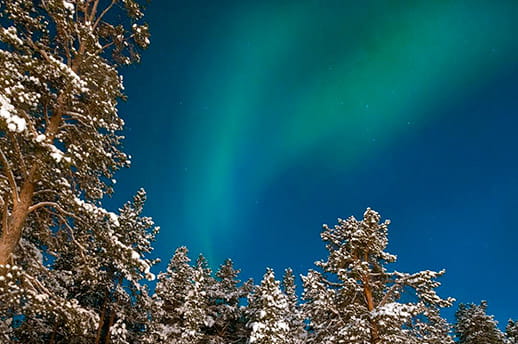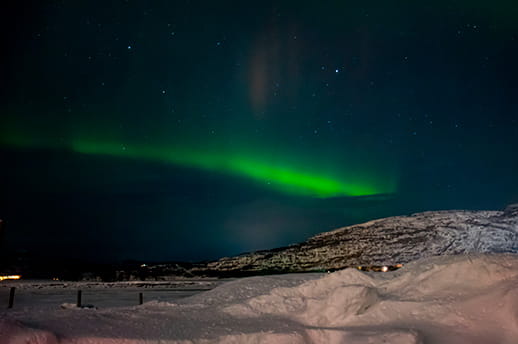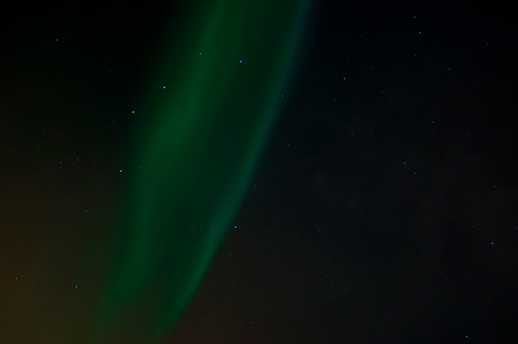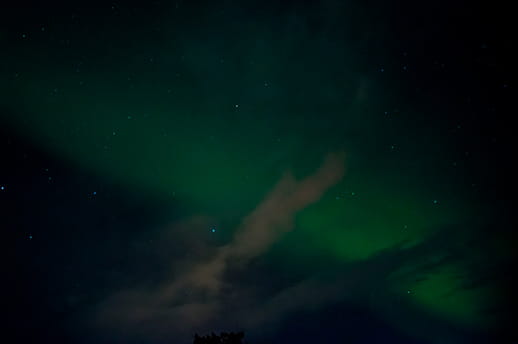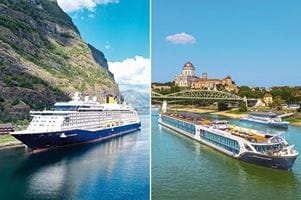Experiences
Six fascinating Northern Lights facts you didn’t know
The Northern Lights or ‘Aurora Borealis’ is a naturally occurring phenomenon that is created by disturbances in magnetosphere caused by solar winds at the earth’s poles. If these solar winds are strong enough, they can affect the trajectory paths of charged particles, creating a magnificent display of colour across the sky.
It’s widely understood that the Arctic Circle in Norway, Iceland and Canada are some of the best places to witness this spectacular show. But there are some lesser known facts about the Northern Lights that we find quite simply fascinating and quite frankly too good not to share.
1. The Northern Lights can interfere with technology
The solar activity that creates the Northern Lights is also responsible for some pretty hefty solar storms. These solar storms have been known to cause interference to radio signals, satellites and other electronic equipment. In extreme cases they have been responsible for major power blackouts.
2. Aurora Borealis is a bit of a Diva!
Aurora Borealis is a natural event that only comes out to play when she decides. Although scientists are getting better at predicting when the Northern Lights might occur, there is still an element of mystery and suspense surrounding when this happens, which means there is no guarantee you will see them. Most trips however are run by experts who know the best times and places to increase your chances of witnessing them.
3. The Northern Lights clap
According to local legends and folklore, crackling noises have been known to emit from the Northern Lights. In 2012 researchers from Aalto University in Finland published a study about “clapping” sounds that they correlated to the visual presence of the Northern Lights. According to the study, these sounds were produced approximately 70 metres above ground and originated from solar particles creating geomagnetic disturbances.
4. Auroras exist on other planets
Auroras don’t just happen on Earth, they also occur on the planets of Saturn and Jupiter. Why? Because they are gaseous and inhibit strong magnetic fields that create massive aurora ovals during solar storms. NASA has also observed auroras on other gas planets including Mars, Neptune and Uranus, however these work differently. The auroras on Mars for example occur around areas of magnetised rock.
5. They are named after a Greek God and a Roman Goddess
Aurora was the name given to the Roman Goddess of Dawn who in Greco-Roman mythology woke the world with a torch. Borealis in Greek mythology, was the God of the North Wind. In the 17th century an astronomer, philosopher and physicist called Pierre Gassendi, witnessed the Northern Lights when visiting the Arctic Circle and combined the names of both Gods, calling them the Aurora Borealis.
6. Aurora Borealis has a sister
Although auroras are the generic name given to this natural phenomenon involving charged particles and solar wind, Aurora Borealis is the name given to the Northern Lights in the northern hemisphere. At the south-pole in Antarctica, there is another aurora which is named the Aurora Australis, Australis meaning southern. These light shows look exactly the same thing, they just occur at different ends of the planet.
If all this talk about auroras has got you itching to go and witness this phenomenon for yourselves, then say no more. A cruise holiday is our most popular way of seeing the Northern Lights, so find out what you could discover on a Norway cruise with Saga.
The opinions expressed are those of the author and are not held by Saga unless specifically stated.
The material is for general information only and does not constitute investment, tax, legal, medical or other form of advice. You should not rely on this information to make (or refrain from making) any decisions. Always obtain independent, professional advice for your own particular situation.
